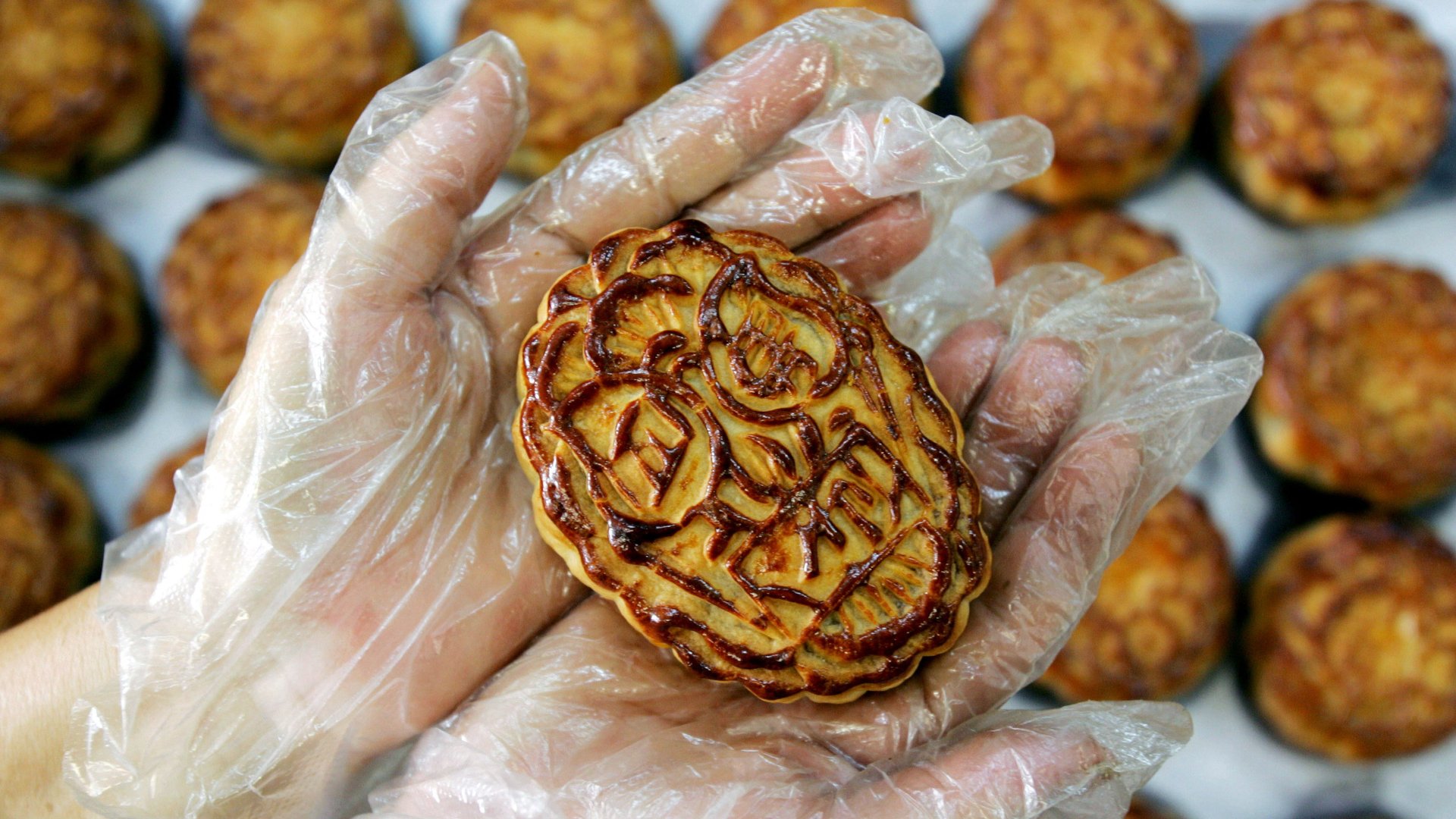The only way to make mooncakes worse is to add gutter oil
Just in case you needed another excuse not to eat mooncakes, the sweet, dense, calorie-laden pastries that are exchanged at China’s mid-autumn festival, Hong Kongers are now worried that many have been contaminated by “gutter oil”—the sickening cooking oil that is reclaimed from kitchen waste, leather tanneries, and slaughterhouses.


Just in case you needed another excuse not to eat mooncakes, the sweet, dense, calorie-laden pastries that are exchanged at China’s mid-autumn festival, Hong Kongers are now worried that many have been contaminated by “gutter oil”—the sickening cooking oil that is reclaimed from kitchen waste, leather tanneries, and slaughterhouses.
Unlike the tainted meat that recently was withdrawn from KFC and McDonald’s outlets in mainland China, this rather disgusting scandal has its roots in Taiwan. A company called Chang Guann purchased 240 tonnes (264 tons) of gutter oil, sourced from grease traps and fryers, from an unlicensed factory. Then Chang Guann resold it to hundreds of restaurants and food companies, including a supplier to the Hong Kong bakery Maxim’s, which makes mooncakes and other pastries
Maxim’s mooncakes are now being tested for traces of gutter oil. The bakery also sold nearly a million potentially-tainted pineapple buns (a breakfast and teatime treat, that, confusingly, contains no pineapple) over the last three years at its stores, the convenience chain 7-Eleven, and other shops including two Hong Kong Starbucks outlets, according to the South China Morning Post (paywall). Maxim’s has pulled all its pineapple buns from the market, and said that from now on it will source lard from Holland instead.
Gutter oil can cause gastrointestinal distress and pose serious health risks, depending on its trace contaminants, which can include heavy metals and carcinogenic toxins. It may also impact the already suffering mooncake industry, as Hong Kong authorities are now testing dozens of mooncakes and other pastries in the city, ahead of the mid-autumn festivities that take place tonight.
As Quartz has reported, sales of mooncake sales have declined sharply in recent years in mainland China due to the government’s corruption crackdown. The pastries were often used to curry favor with government officials, with luxury gold and silver gift boxes going for thousands of dollars. Many more were given and received than were consumed—an environmental group said that Hong Kongers alone throw away 1.5 million uneaten mooncakes per year.
China’s government-run People Daily reported that thanks to the corruption crackdown, the mid-autumn festival “is no longer a burdensome affair” for government officials who were once swamped by offerings. “I had to accept so many mooncakes as gifts that my family would have to eat them for breakfast for weeks,” one civil servant told the newspaper.